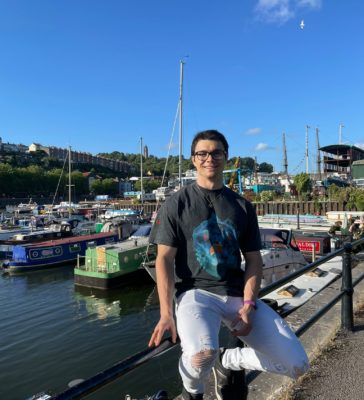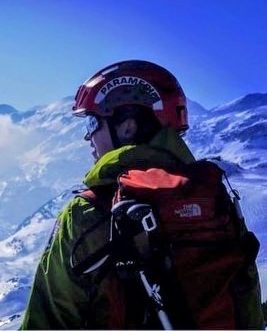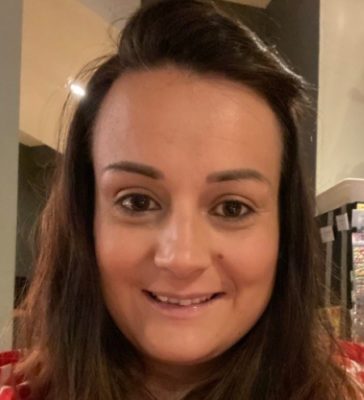
Alexandru Stan
Current Employer/Organisation Name
University of Bristol + NHS
What have you been doing since leaving Exeter, and what are you doing now?
Since graduating medical sciences from Exeter, I have been studying medicine at the University of Bristol. Aside from my studies, I have been involved with other extra-curricular activities such as completing internships and projects in higher education and medical education as well as being involved and having various leadership roles within the mental health charity of Bristol Nightline.
Why did you choose this career? And what do you enjoy most about your work?
I chose medicine as I wanted to take further the skills and knowledge that I have acquired during my degree as well as the human interaction aspect of medicine. There are many things that I enjoy most about my current degree, but the best aspect are the opportunities you can create for yourself by being pro-active especially in the field of teaching and education. Equally, this is an ever changing field that requires adaptation and there is always room for self-improvement.
Please tell us if you were a member of any societies, groups or sports clubs?
Whilst at the University of Exeter, I was mainly active with two societies – Exeter Romanian society and Exeter Medical Management and Leadership society. I thoroughly enjoyed both societies, though they were quite different in nature. I was active with the Exeter Romanian society more for the social and sports aspect whereas Exeter Medical Leadership and Management society offered more academic and work related extracurricular opportunities, which I equally enjoyed as well as used to build up my portfolio.
What did you enjoy most about your programme and what was the biggest highlight?
The best aspect of the programme, that though I appreciated at the time, I only learned to appreciate even more with time and experience was the teaching style, the opportunities you could create for yourself in the areas of your interest and the support from the academic staff. I feel like this gave me a good solid base as a young adult that prepared me for the years to come and I will likely carry on doing later on in life. One of the biggest highlights was the inter-professional conference for medicine, medical science and radiology students organised by the Medical School department at the end of my 3rd year. I managed to help organise it which in itself was good experience. It also felt quite symbolic as I felt like it marked the occasion of celebrating the academic achievements of the past few years, teamwork, dedication and collaboration, where everyone, students, academic staff, friends alike would gather together to mark the end of the academic year. It was a balanced combination of celebrating various academic achievements, learning and a spirit of togetherness.
What did you enjoy most about studying here?
Some of the aspects I enjoyed most were the way the core modules were taught through problem-based/case-based learning. When done properly and people engaged with it, it offers so much more than just a base of knowledge that sometimes passes unremarked. However, the blended approach of learning styles and the willingness of the academic staff to be supportive is something that is now embedded within me with joy. Equally, I loved the exposure I had to neuroscience as I discovered that is a strong are of interest for me, and I am now potentially thinking about a career to do with medical education and/or neurology.
Why did you choose to study at Exeter?
I chose to study at Exeter for two main reasons. First of all, I wanted to study medicine, and at the time medical sciences allowed the transfer of some of the very top students to medicine. However, despite not having been able to transfer after the 1st year, and completing the 3 year course of medical science is something that I would not want to change. I am glad it actually turned out like that, and I saw this as an achievement. If I had to go back in time and have the same opportunities, I would probably do the same again. Secondly, Exeter, as a city, is beautiful. Lots of open green spaces, a good balance between busy and tranquillity and not feeling too crowded. That is something that I still cherish today.
What skills and experiences have been most useful for your career?
Some of the skills that have been useful that I carried forward are the skills I acquired through problem/case-based learning, lab practical sessions and neuroscience journal clubs. Apart from the scientific knowledge that I can apply in medicine, the teamwork, communication, time management, organisation and flexibility had gradually been improved throughout the years with the problem/case-based learning. The lab practical sessions really helped with developing manual dexterity and getting used to following certain protocols, something that we do throughout medicine to offer patient care as well. The neuroscience journal clubs fed my passion for knowledge and neuroscience but also really helped with developing my critical thinking/analytical skills as well as being able to summarise and read papers efficiently.
What advice would you give to a current student who wishes to pursue your career?
Be curious, stay relentless, explore all your options and see what fits best for you. There were various times throughout the medical sciences degree and medicine where I felt like I failed, doubted myself and wanted to quit. Many times that I thought I was not fit enough for the roles and work. There were times I looked around me and thought “Wow, look at them, they are doing so great, they are so lucky!”. With time, I’ve learned that it’s always you against yourself, and as long as you learn something from your experience then you never fail. Luck is when preparation meets opportunity. When you may fall down and feel like you failed, then you’re one step closer to success and the only place you can go from there is to succeed in achieving your goals.
What are your plans for the future?
In the future, I want to become the best version of myself working as a doctor within the NHS, following a career in medical education/academia and/or working within the field of neurology.

